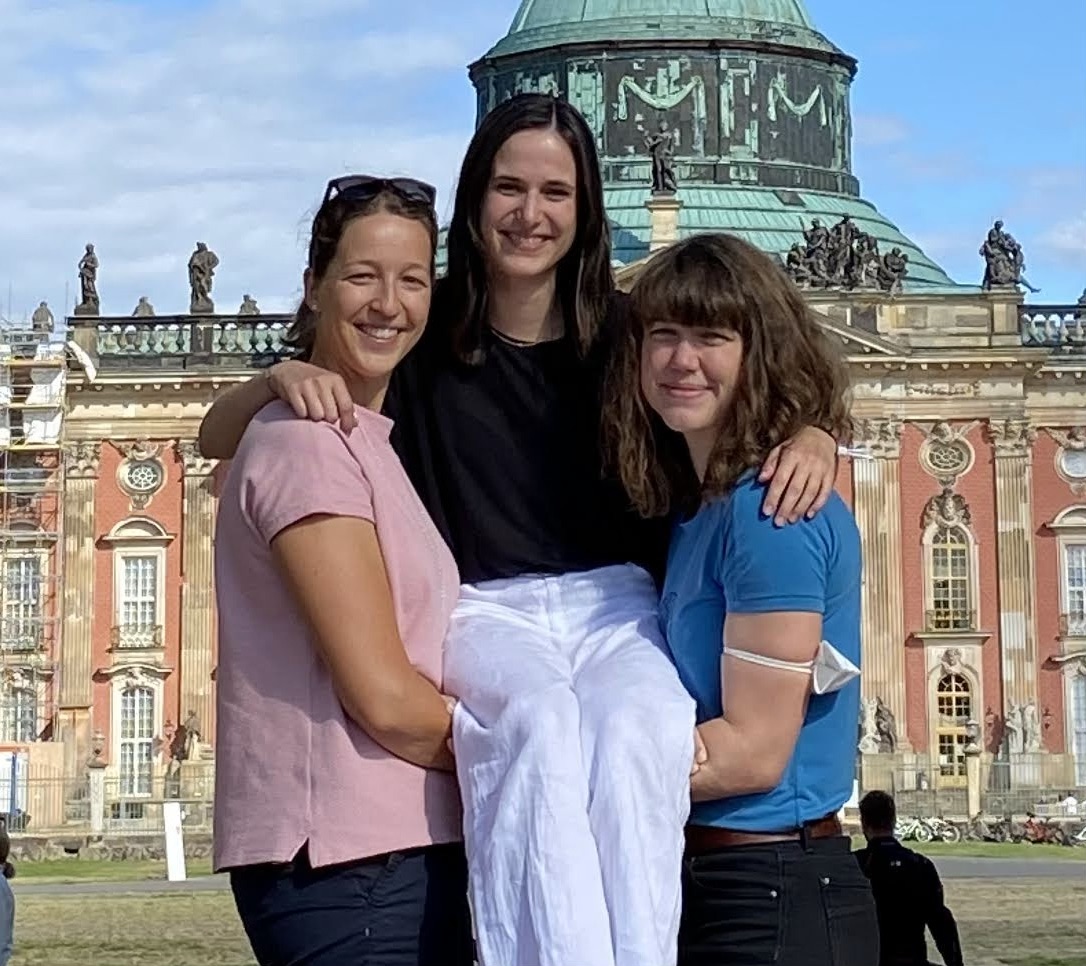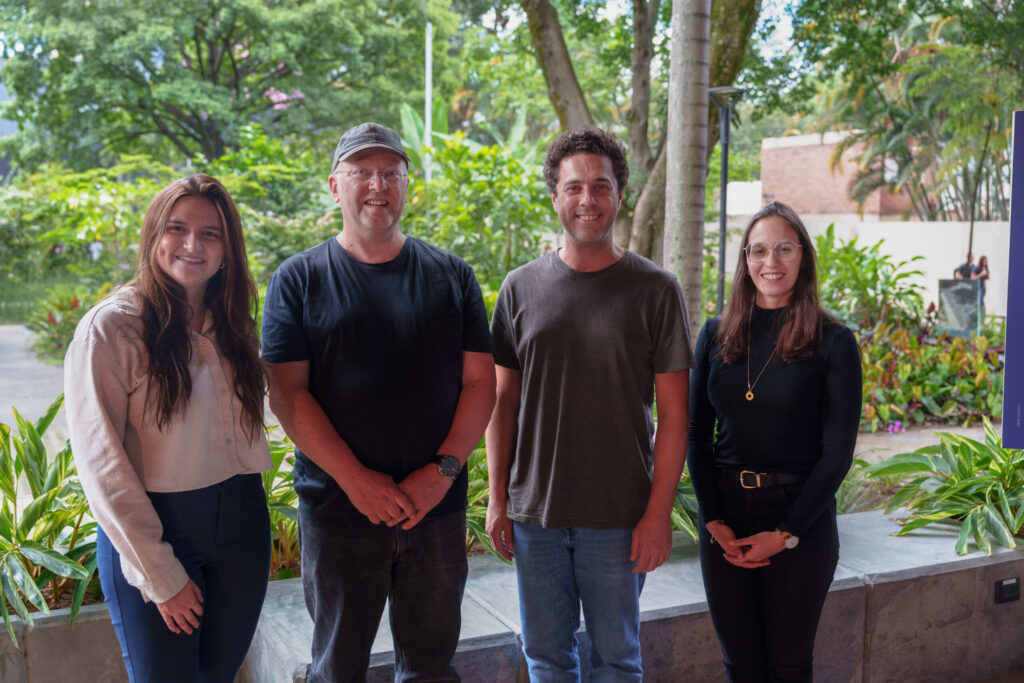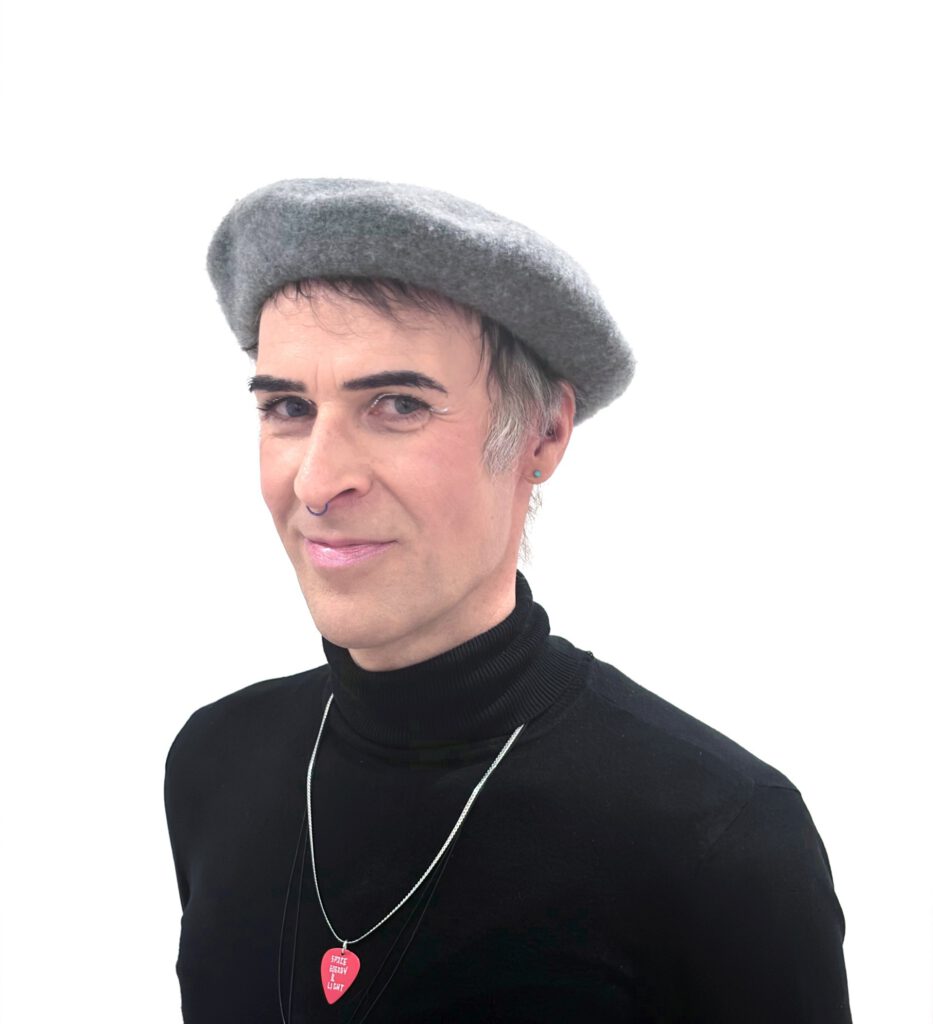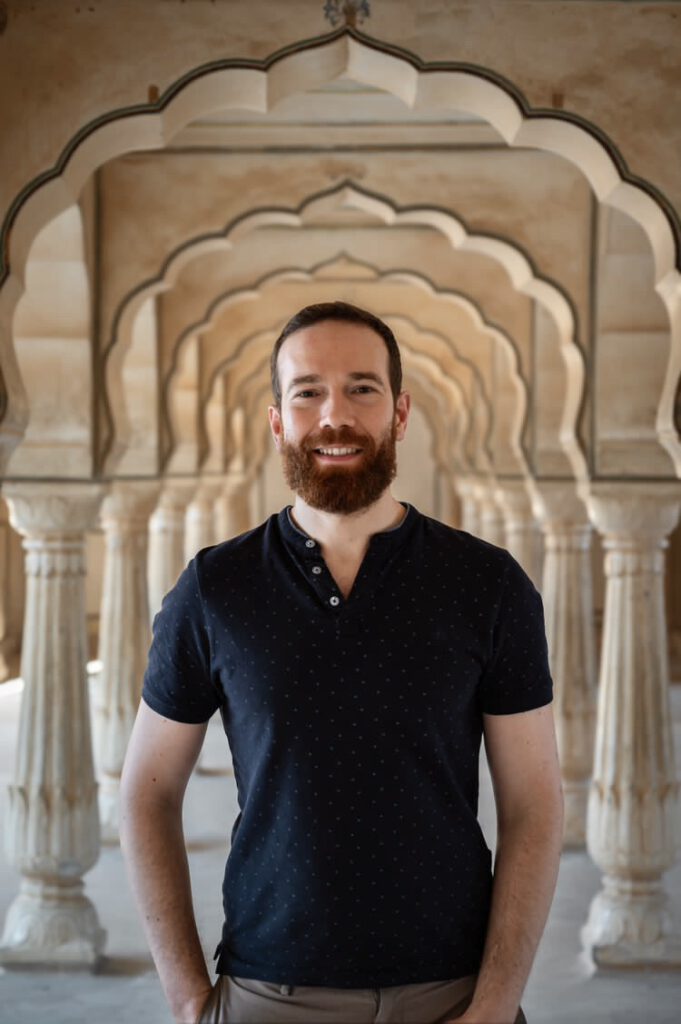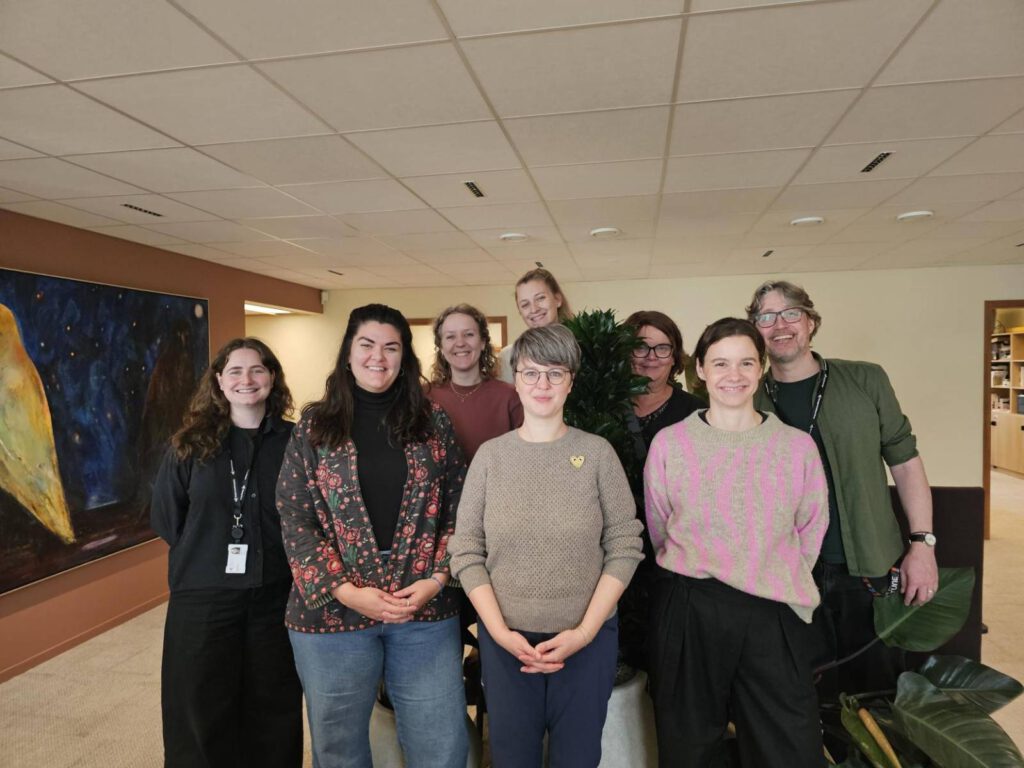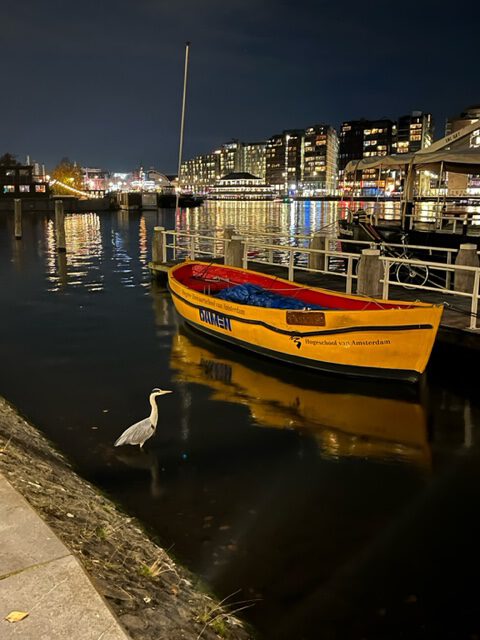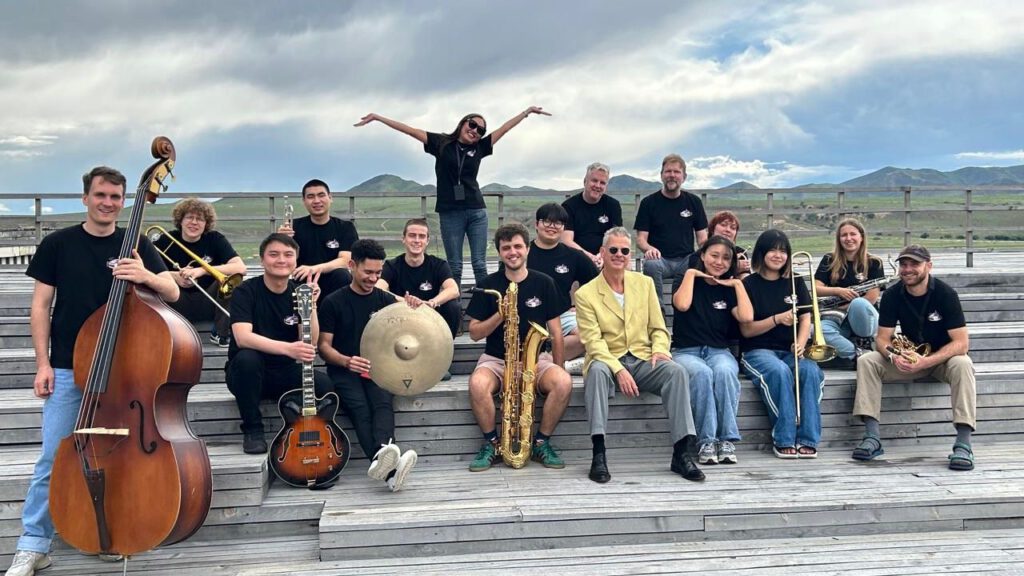International summer school 2022
Teaching the UN Sustainable Development Goals
In the week before the Austrian school year started, we – that’s Doris, Antonia, and Magdalena – travelled to Potsdam, Germany, to take part in the international Summer School 2022, organised by the University of Potsdam.
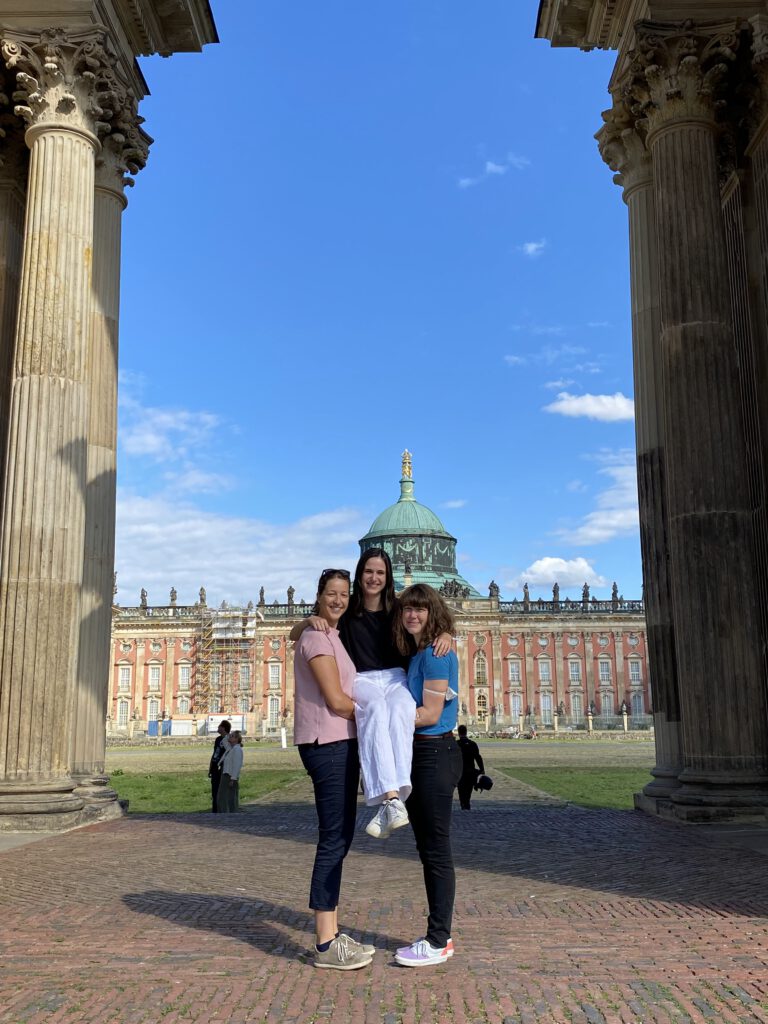
Together with other students and professors, we tried to answer the question:
How can we as (soon-to-be) teachers implement the SDGs in our teaching?
Wait, let’s take one step back: because although the SDGs have existed for some years, the three of us had hardly heard of them before the Summer School.
So, what are the SDGs?
In 2015, the United Nations created the 2030 Agenda for Sustainable Development. All UN member states have adopted these Social Development Goals (SDGs) as strategies to end poverty, reduce inequality, improve health and education, and tackle the climate crisis.
There are 17 interlinked goals:
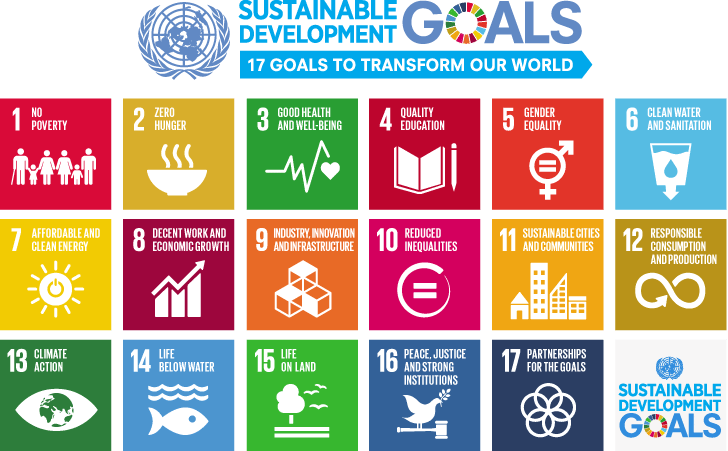
To work towards those goals in our own fields, we 54 student teachers were divided into four different study groups:
- History and Social Sciences
- Chemistry an English
- Mulitlingualism
- Music
Most of the time was spent working in these study groups, but there were also presentations and workshops for which all Summer School participants came together.
Our lovely music study group consisted of students from universities from Germany, the Netherlands, Belgium, and Austria. Together with our professors, we students tried to find different approaches to the SDGs as part of our teaching. We asked ourselves: what solutions can music education, provide and how can we implement and emphasise them in our teaching?
We tried to find various approaches to the topic in a theoretical way while never missing out on making music together.
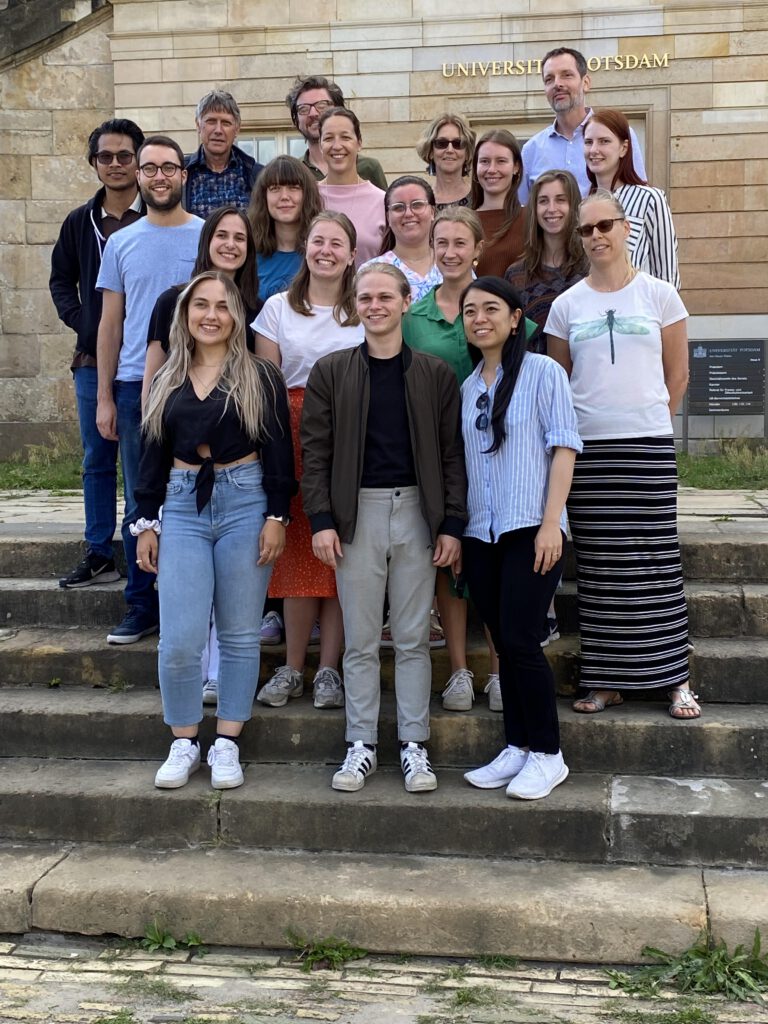
Apart from the study groups, the international Summer School committee offered different social activities in the evenings. On Monday, we went on a campus tour of the university and joined the Potsdam bicycle tour, exploring different parts of the city and its history.
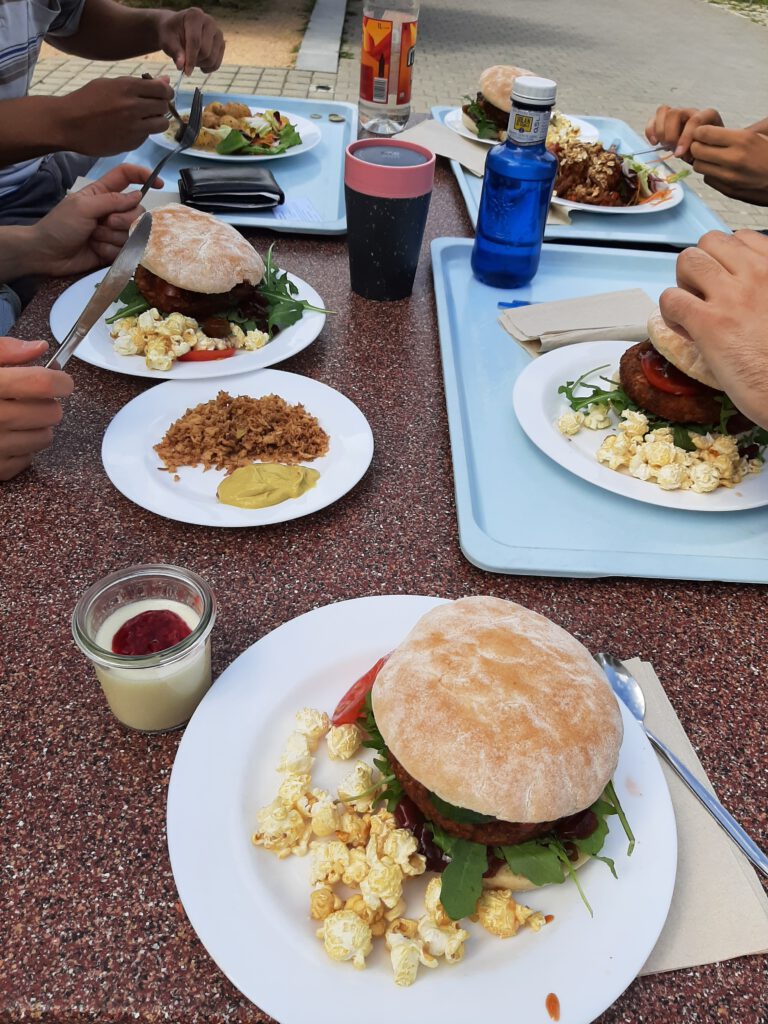
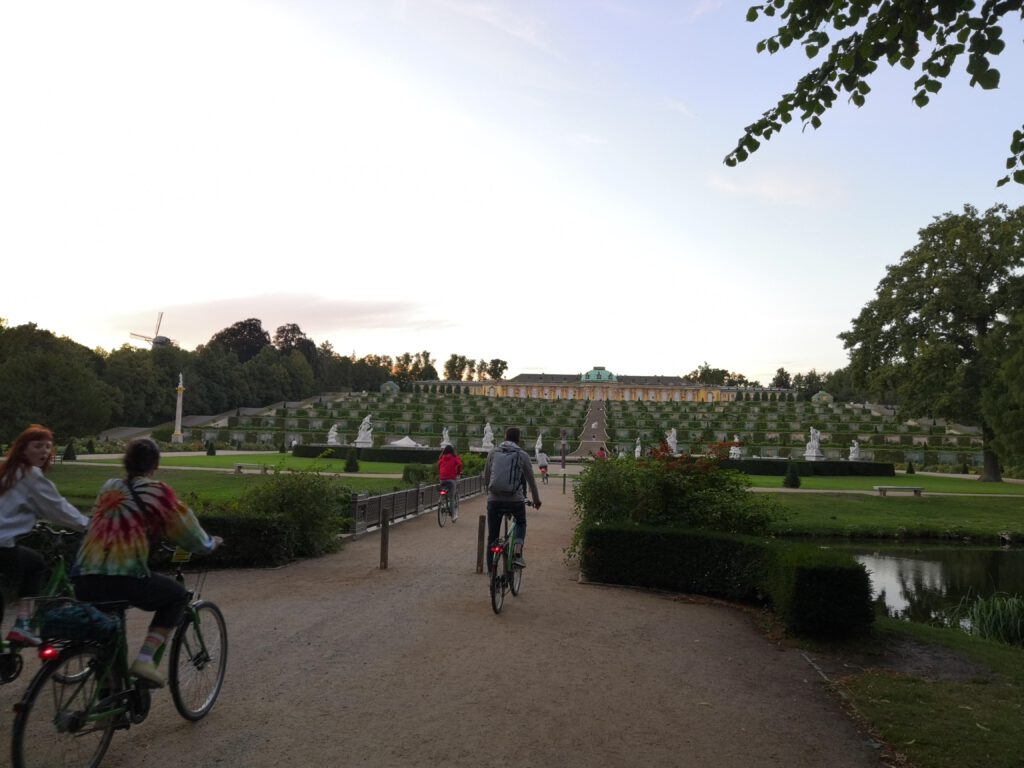
On Tuesday, a big, fancy picnic was organised with healthy and mostly vegan food which was – by the way – really delicious. The evening ended with making music together while sitting under the stars on a big blanket.
On Wednesday, we decided to enjoy the free afternoon, bought some nice food at the supermarket at the train station, and relaxed while having a good talk in bed. Quite late, we received a message from the music study group asking us to join them for cocktails – and so we did. We enjoyed talking to our new friends from Belgium and the Netherlands. We took the last train back to our hotel and fell into bed.
The last two days were full of preparations for the upcoming presentation on Friday afternoon. There was only spare time for taking nice pictures in front of the University of Potsdam.
The presentations on Friday were really impressive. We had hardly noticed how the other study groups were working. After lunch we were the first group to give its presentation. We began outside the university building with an industrial sound stage. We then guided all the groups via the stairs to another room. While they made their way to our performing room, posters on the walls informed them about our insights as to how music and music education are related to the SDGs. In our last performance, we incorporated a way of making music together called “soundpainting”. In the end, the audience also participated in our music piece.
After a short break, the other three study groups held their presentations and gave us and all other participants of the Summer School insights into their topics and findings. The Chemistry and English group reported on their experiment with pupils, the History and Social Sciences study group led us on a journey questioning our identity and shedding light on the great impact word choices in different languages can have. In the final presentation, the Multilingualism study group impressed us with their digital archive and their way of presenting similarities and differences between the various languages represented by both students and lecturers.
After the presentations – since we hadn’t done enough sightseeing – we joined a Berlin city tour on Friday evening. Following the tour, we finished the day in a typical Berlin restaurant next to the Brandenburg Gate. Tired but thankful for the week, we fell into bed and relaxed as much as we could before heading back home.
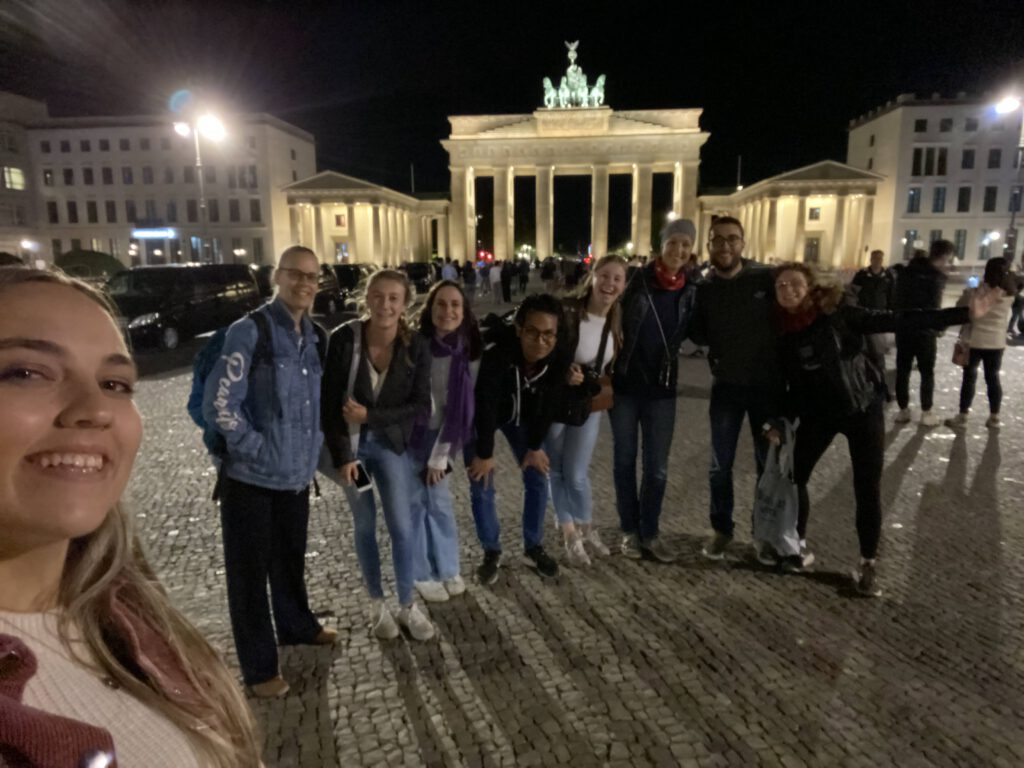
Our participation in the Summer School and the intense work with the SDGs has taught us that the topics covered by the UN’s goals are ubiquitous and especially relevant for teachers, since we should be the ones modelling these values, creating a space in our classrooms that is inclusive, equal for all students, and thought-provoking, and all in all imparting education of a high quality.
And while we learned a great deal during the week, we also enjoyed socialising with colleagues from all over Europe, making connections, comparing different university and school systems, and most of all having fun together.
Finally, we would like to thank everyone who made the week possible and special. First of all, we are very grateful to the hmdw Lehramt, which financed our travel to Potsdam. Second of all, we would like to thank the mdw and especially mdw faculty Wilfried Aigner, who convinced us to take part in the Summer School and explore a new aspect of music education. Last but not least, a really big thank you to the University of Potsdam, which organised and financed the whole stay and made the week as comfortable as possible.

